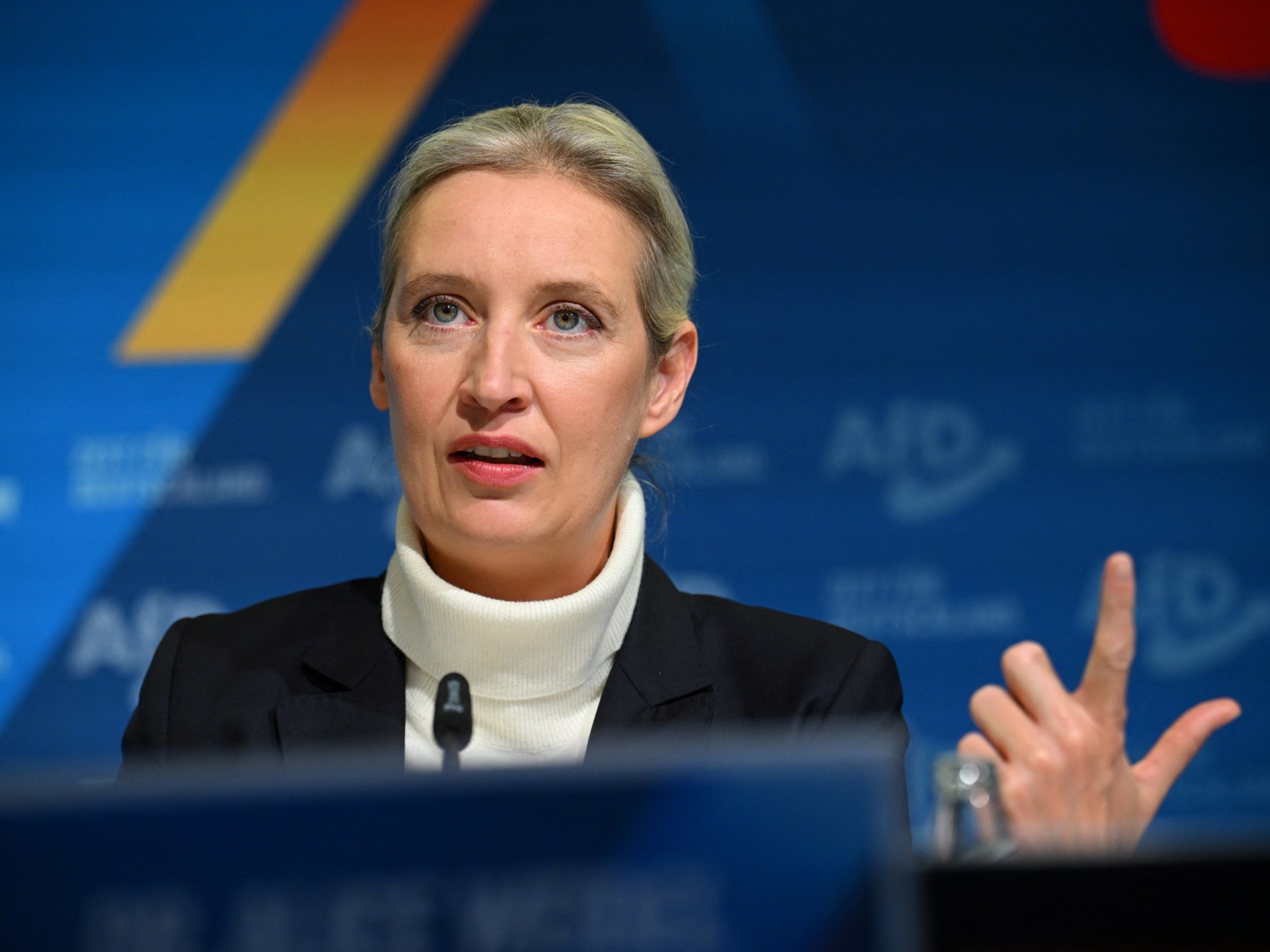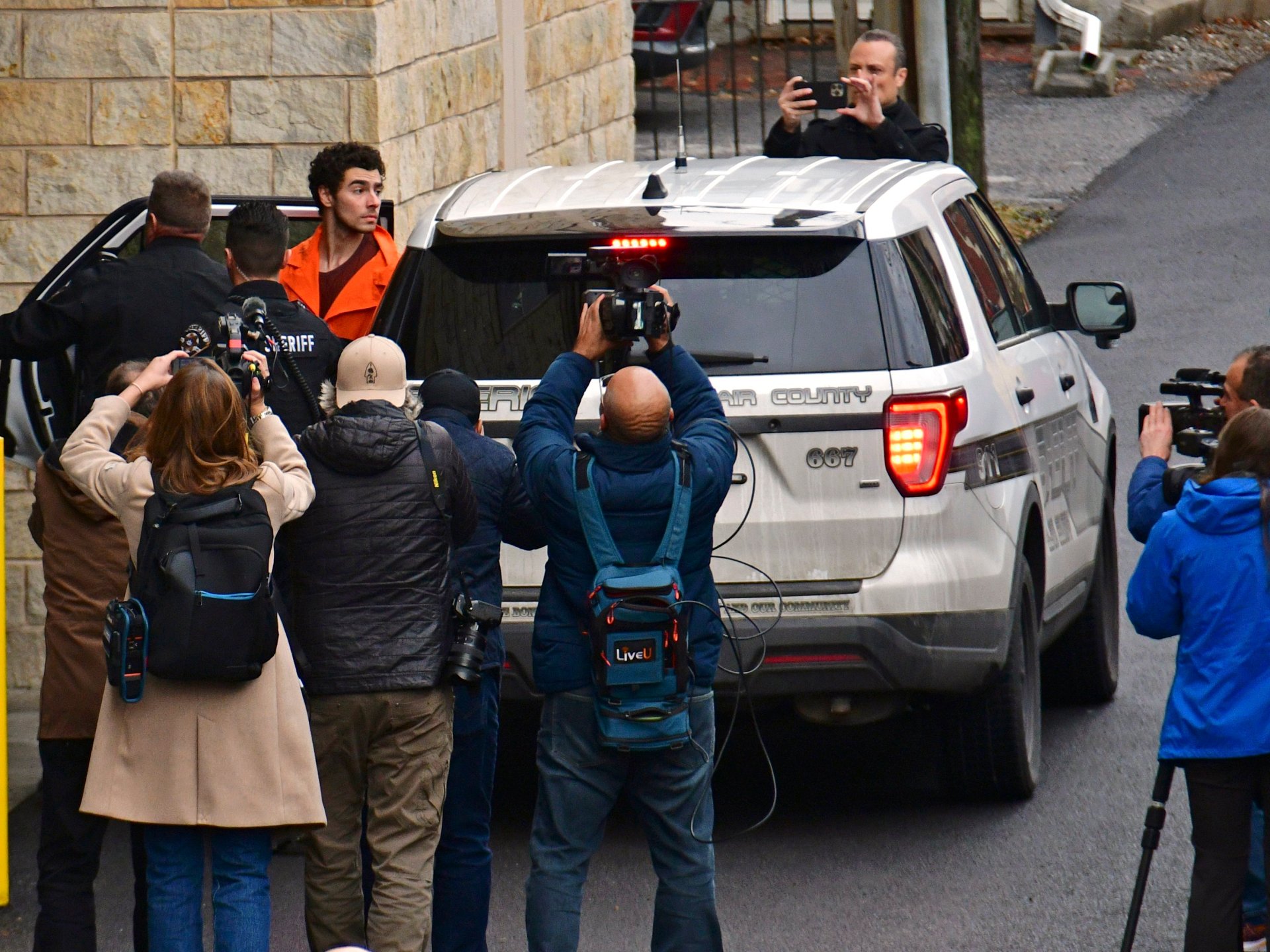

The far-right Alternative for Germany (AfD) has named party leader Alice Weidel as its first chancellor nominee, before snap elections expected in February next year.
The Chinese-speaking Weidel accepted the nomination on Saturday, saying her anti-immigration, eurosceptic party wants Germany to be “at the top again worldwide”.
The 45-year-old is raising two sons with a Sri Lankan-born woman, a filmmaker, and speaks fluent Mandarin, having done a doctorate in economics in China.
A west German leading a party that is strongest in Germany’s former communist east, she worked for Goldman Sachs and Allianz Global Investors and as a freelance business consultant before entering politics.
Her critics call her a ruthless opportunist and a “wolf in sheep’s clothing”.
Weidel will be confirmed as the AfD’s candidate at a party conference in January.
Her candidacy is largely symbolic given that there is no prospect of a majority in parliament in favour of an AfD chancellor, with other parties refusing to cooperate with the far-right party.
Advertisement
As the party met for the nomination in northern Berlin, about 200 demonstrators gathered outside the venue, demanding a ban on the AfD and chanting, “All together against fascism.”

Chancellor Olaf Scholz’s squabbling three-party coalition collapsed in early November after he fired former Finance Minister Christian Lindner of the pro-business Free Democrats (FDP) following months of disputes over economic policy and the 2025 budget.
The chancellor has announced plans to hold a vote of confidence later this month, which is widely expected to lead to early elections on February 23.
Weidel has explained the AfD’s decision to nominate a candidate for chancellor by asserting that her party has a claim to govern, citing its opinion poll ratings.
The AfD, which was founded in 2013 and first entered parliament in 2017, is currently polling between 18 and 19 percent nationwide, placing it in second position behind the conservative Christian Democrats/Christian Social Union (CDU/CSU) bloc with 32 to 33 percent.
The governing Social Democratic Party of Chancellor Scholz is currently polling at about 18 percent.
Deep discontent with Scholz’s government – which was notorious for infighting, inflation and a weak economy – as well as anti-immigration sentiment and scepticism towards German military aid for Ukraine, are among the factors that contributed to support for the AfD.
AfD is at its strongest in the east, and the domestic intelligence agency has the party’s branches in both Saxony and Thuringia under official surveillance as “proven right-wing extremist” groups.
Advertisement
The other candidates expected to run for the chancellery are Scholz for the centre-left Social Democrats, Friedrich Merz for the Christian Democrats, and Robert Habeck for the environmentalist Greens.
Related News

US says conducted strikes against Houthi targets in Yemen’s capital

Fingerprints, shell casings link Luigi Mangione to murder scene, police say

‘Climate of terror’: New York’s migrants and asylum seekers brace for Trump


